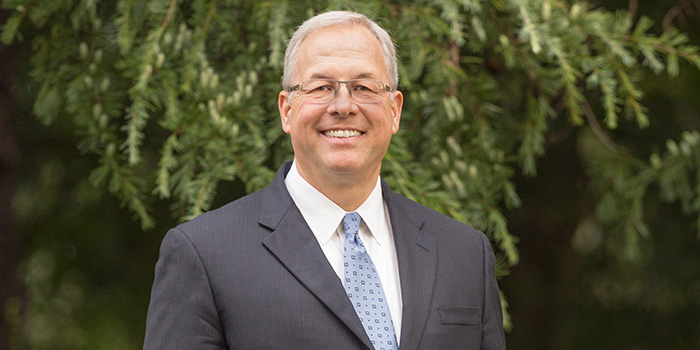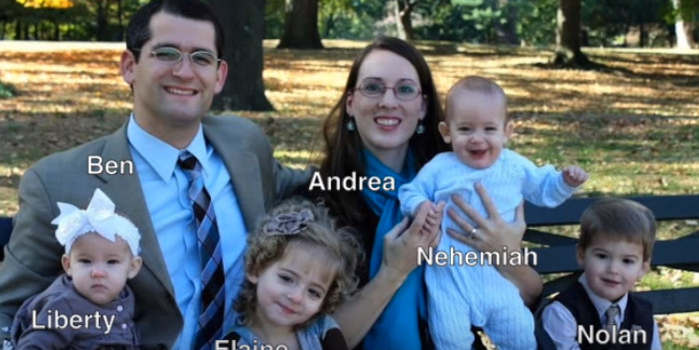





Merriam-Webster’s Dictionary defines regret as “to feel sad or sorry about something that you did or did not do.” Most people regret something that they have done, or they regret passing on an opportunity to do something that they did not do. Some regrets are small in nature, and they have little impact on the mind and heart. Others are huge and emotionally devastating. Of course, the best defense against regret is to begin with the end in mind, get our minds to think beyond the present moment, and consider the long-term consequences of our actions (or inactions). If we don’t like what we see when we look into the future, then nip that future regret in the bud by not making the regretful decision.
Karl Pillemer looked into the future, and he did so about 1,000 times. Pillemer set out to mine the wisdom of roughly 1,000 elderly Americans to determine what advice they would give younger generations. His five-year research project birthed the book, 30 Lessons For Living: Tried and True Advise from the Wisest Americans. The topics covered include:
- Marriage
- Career
- Parenting
- Aging
- Living life without regrets
- Happiness
Pillemer uncovered five key lessons in each of the six topic areas – hence the 30 lessons. When it came to living life without regrets, Lesson # 2 was “Say Yes to Opportunities” in your career. As Pillemer reports:
As far as work is concerned, those experts who were happiest about their careers can point to a decision where they were tempted to say no, where staying the course was more comfortable and less risky, but they finally decided to give it a go…My interviews make clear that the experts who took a risk at a crucial juncture were those who looked back with the greatest satisfaction on their work lives. For many of the most successful elders, the “say yes” attitude formed their core approach to work. For others, missed opportunities proved a serious source of regret near the end of their lives. This is the existential dilemma we all face. We cannot take two paths at once. At some point we must decide, and as far as our life’s work goes, not deciding is in fact a decision.*
To illustrate his point, Pillemer recounted the attitudes of two men, Rod and Vincent, towards their careers. Rod was pleased with his retirement package, but he regretted the passionless, purposeless nature of his career. In contrast, Vincent looked back on his career with great fondness, having abandoned a lackluster career in business for a fulfilling one as a writer. As Vincent shared:
People in their twenties and thirties get stuck in professions they don’t like because the material rewards are so great. By the time you get to be forty or fifty, I think some of the brighter ones are having second thoughts. I believe you need to think beyond yourself and your material concerns. I call it the “little man syndrome.” You go up and you sit on the beach and the water washes in and washes out and it says, “Little man, what happened to you? Look up, the Big Dipper doesn’t care how much money you made working for JP Morgan. It just doesn’t matter.*
The bottom line? The key difference between looking back on your career with regret and looking back on your career with satisfaction is “saying yes at the right moment and being willing to take the risk and the financial consequences of that decision.”* Unfortunately, many are unwilling to take the proverbial “leap of faith” that Vincent advocated. As a result, they lead a mediocre career that they live to regret.
Thankfully, my friend decided to choose risk over security. Years ago, one of my best friends was at a crossroads. He had the opportunity to leave a career he didn’t much care for to start one he thought would be great for his family. The problem? The job he was to leave came with a steady paycheck. The job he was to take did not. The job he was considering was a commission-based sales job, and the only way he could earn income was to sell, sell, sell! He had never held a sales position before, let alone a commission-only sales position, so he had no track record of achievement to factor into his decision. Needless to say, he was scared to death! He prayed long and hard for God to show him what he should do, and after a time he felt The Lord wanted him to take the plunge. Trusting God alone for the increase, my friend stepped onto God’s bridge of faith. Now, roughly twenty years later, my friend is (and consistently has been) one of the most successful people in his market and industry.
Chapter 11 of the book of Hebrews is called by many “The Hall of Fame of Faith.” It could just as easily be called “The Hall of Fame of Risk.” When you consider the lives of the people listed in Hebrews 11, you cannot help but see risk surrounding their souls. What sense did it make for Noah to build an ark when no one had ever seen rain? What sense did it make, at age 75, for Abraham to leave his home with no clue where he was going? Why in the world would Moses reject his comfortable, wealthy position as a prince of Egypt to lead a bunch of poor slaves? Why? Because they had faith in the God of Heaven, and they were willing to step onto God’s bridge of faith, despite the risks inherent with such steps.
Trusting in God’s promises and in His character requires faith, and exercising faith requires embracing risk. If you don’t know for sure whether God is asking you to take a certain career step of faith, then don’t take it. However, when God makes it clear, beyond a shadow of a doubt, that He wants you to stop trusting in what you can see and start trusting in what He can see, then do so. By trusting God and embracing the risk, you’ll have access to a host of blessings that only faith – and risk – can unlock.
Oh, and you’ll also be able to avoid the career regret that Pillemer’s experts warned emphatically against.
* Excerpt From: Pillemer, Karl. “30 Lessons for Living.” PENGUIN group, 2011-08-19. iBooks. This material may be protected by copyright. Check out this book on the iBooks Store: https://itunes.apple.com/WebObjects/MZStore.woa/wa/viewBook?id=440422388
 Robbie Romeiser is a commercial real estate broker, real estate instructor, and author of the daily devotional Today’s Quote From God (www.TodaysQuoteFromGod.com). Desiring to help his own children follow God’s calling in their lives, Robbie founded Career Callings (www.CareerCallings.net) to help people find, prepare for, and pursue the work God has called them to do.
Robbie Romeiser is a commercial real estate broker, real estate instructor, and author of the daily devotional Today’s Quote From God (www.TodaysQuoteFromGod.com). Desiring to help his own children follow God’s calling in their lives, Robbie founded Career Callings (www.CareerCallings.net) to help people find, prepare for, and pursue the work God has called them to do.















